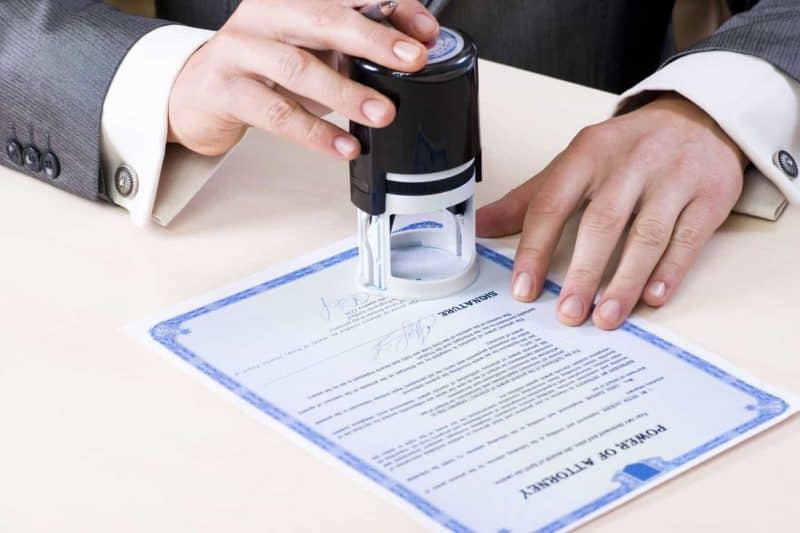In a world where international trade, travel, and collaboration have become the norm, the need for the exchange of official documents between countries is increasingly important. Whether it’s using diplomas, birth certificates, Certificates of Conduct (VOG), certificates for medicines, free sales certificates, marriage certificates, or other legal documents abroad, these documents often need to be authenticated before foreign authorities will recognize them. This process of document authentication can be complex and time-consuming. Fortunately, the Apostille Convention offers an efficient solution. But what exactly is this convention and how does it work? Let’s delve deeper.
What is the apostille convention?
The Apostille Convention, officially known as the Convention Abolishing the Requirement of Legalisation for Foreign Public Documents, was adopted on October 5, 1961, in The Hague. The goal of this convention is to simplify the process of legalizing public documents used abroad. Instead of a lengthy and complex series of legalization procedures, the convention introduces a single step: the apostille.
An apostille is a certificate issued by a competent authority in the country where the document originated. This certificate confirms the authenticity of the document, allowing it to be recognized abroad without further legalization. The Apostille Convention is managed by the Hague Conference on Private International Law (HCCH).
How does the apostille convention work?
The core of the Apostille Convention is the simplification of the legalization process. Normally, official documents intended for use abroad would need to be approved by various authorities, including local, regional, and national bodies, before they are ultimately legalized by the embassy or consulate of the destination country. This process, known as “consular legalization,” can take weeks or even months.
With the Apostille Convention, this process is significantly simplified. Once a document has been issued with an apostille, it can be used directly in any other country that is a party to the convention, without requiring further legalization.
Which countries are party to the apostille convention?
The Apostille Convention now includes more than 120 member states, including almost all European countries, the United States, Australia, Japan, and many Latin American countries. This widespread participation makes the convention a globally recognized tool for simplifying document authentication. Countries that are not parties to the convention typically still require a more lengthy legalization process.
However, it is important to note that some major countries, such as Canada and most countries in the Middle East, are not parties to the convention. In these cases, traditional legalization processes are still required.
How do you obtain an apostille?
Obtaining an apostille varies by country, as each country has its own procedures and designated authorities. In the Netherlands, for example, the apostille is issued by the courts. In Belgium, it is the administrations of the Courts of Appeal that are responsible. In the United States, the secretaries of the various states are the competent authorities.
Generally, the process is straightforward:
- Identify the competent authority: Depending on the country, you need to know which authority is responsible for issuing the apostille.
- Submit the document: Bring or send the document to the competent authority. Sometimes this can also be done online.
- Pay the fees: The costs for an apostille can vary by country and by document type.
- Receive the apostille certificate: The document will be stamped or attached with the apostille certificate.

Benefits of the apostille convention
The Apostille Convention offers numerous advantages for both individuals and businesses:
- Simplicity: The convention eliminates the complex and time-consuming process of consular legalization.
- Speed: Obtaining an apostille usually takes only a few days, compared to weeks or months with traditional legalization.
- Cost Savings: With just one stamp or seal, fewer intermediaries are needed, saving on costs.
- Global Recognition: The large number of participating countries makes the apostille certificate widely accepted.
Challenges of the apostille convention
While the Apostille Convention is a valuable tool, there are also some limitations and challenges:
- Limited validity in non-member states: In countries that are not parties to the convention, an apostille is not sufficient, and traditional legalization processes remain necessary.
- Varied interpretations and implementation: Although the convention provides clear guidelines, countries may differ in how they apply it, which can sometimes lead to confusion.
- Fraud: Despite safeguards, there can still be instances of fraudulent documents, although modern techniques have significantly reduced this risk.
The apostille convention simplifies legalization
The Apostille Convention plays a crucial role in the modern world of international mobility and collaboration. By simplifying the legalization of documents, it provides an efficient and reliable way to have documents recognized across borders. Although there are still challenges and limitations, the convention remains a powerful tool that underpins faster international transactions. For both individuals and businesses, understanding the Apostille Convention is essential when dealing with official documents abroad.
Need help?
Do you need assistance with requesting an Apostille? At Jurid Consult, we are at your service for requesting an Apostille, as well as for the required certified translations of the document.




